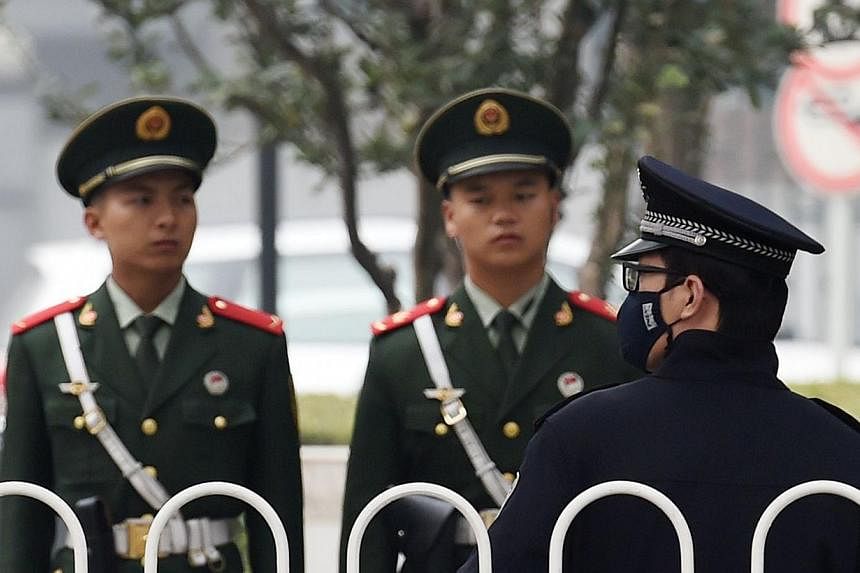BEIJING (AFP) - China has passed an anti-espionage law that could widen the scope for activities to be classified as spying, after the ruling Communist Party at a key meeting last month vowed to implement the "rule of law".
The Counterespionage Law was passed by the standing committee of the National People's Congress, replacing the State Security Law of 1993, according to the full text of the new measure on the website of the rubber-stamp legislature.
It shuns the ideological references of the previous legislation, such as "protecting the state power of the people's democratic dictatorship and the socialist system".
There is no similarly party-political definition in the new law, which instead states broadly that it is intended "to prevent, suppress and punish acts of espionage and to safeguard national security".
The definitions of acts endangering state security in the 1993 law included "plotting to subvert the government, dismember the State or overthrow the socialist system".
It was removed from the new measure, while other definitions of acts of espionage are largely unchanged, except for the addition of "indicating targets of attack for the enemy".
Foreign ministry spokeswoman Hua Chunying said the law passed on Saturday was "an important measure (taken) by the country to safeguard national security".
"It includes new rules that have proven effective in practice," the official Xinhua news agency said, implying that it codifies existing practice.
The communist party vowed to pursue the "rule of law" at a meeting of its top leaders - known as the Fourth Plenum - late last month, while at the same time reaffirming its supremacy over the legal system.
China indicted 830 people for subversion, "splittism", incitement and other crimes under the category of "endangering state security" in 2013, down an estimated 21 per cent from a year earlier and the lowest number since 2007, US-based advocacy group Dui Hua Foundation said in a report in March.
However, the decrease may signal a change in tactics under which political dissidents appear to be increasingly charged with non-state security crimes, thereby "obscuring the political nature of their contested acts", it said.

